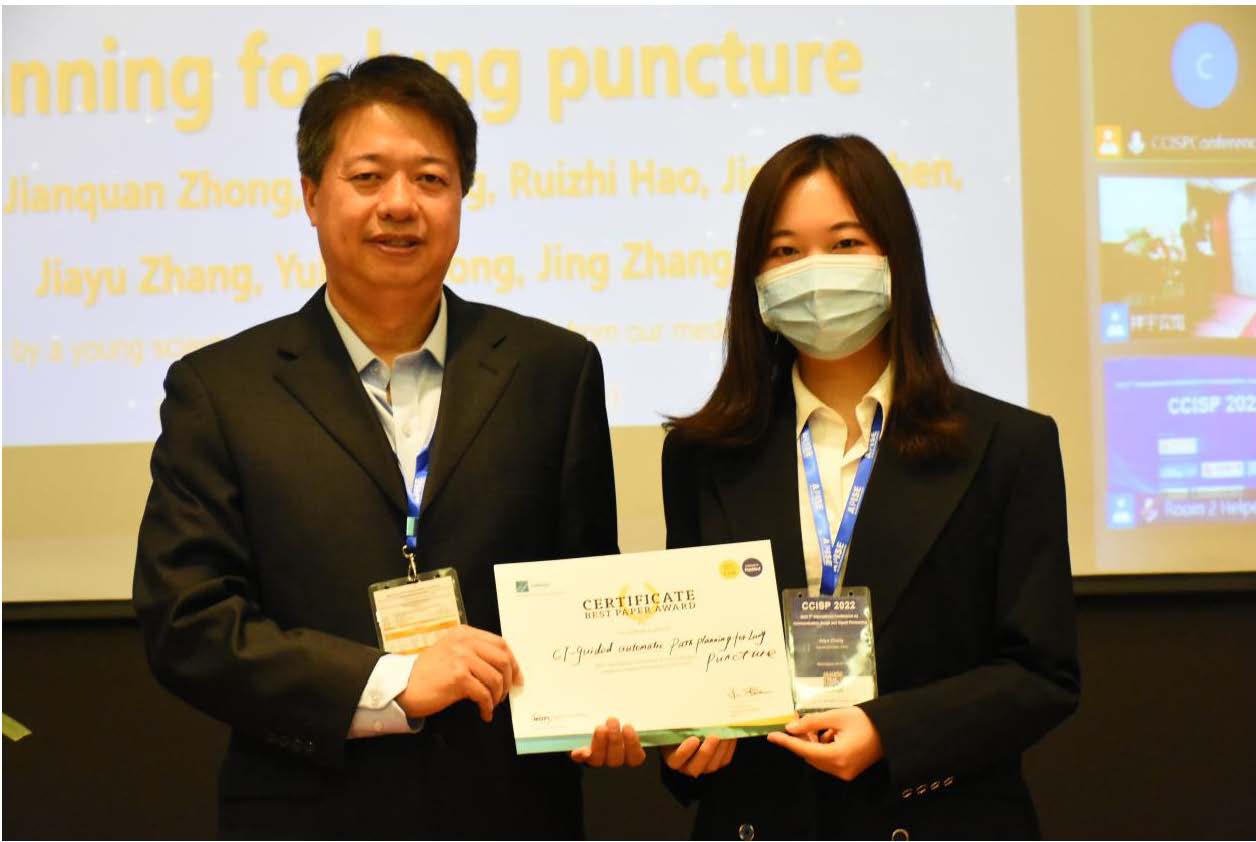
Journal Menu
► ▼ Journal Menu-
- Entropy Home
- Aims & Scope
- Editorial Board
- Reviewer Board
- Topical Advisory Panel
- Photography Exhibition
- Instructions for Authors
- Special Issues
- Topics
- Sections & Collections
- Article Processing Charge
- Indexing & Archiving
- Editor’s Choice Articles
- Most Cited & Viewed
- Journal Statistics
- Journal History
- Journal Awards
- Society Collaborations
- Conferences
- Editorial Office
Journal Browser
► ▼ Journal Browser-
arrow_forward_ios
Forthcoming issue
arrow_forward_ios Current issue - Vol. 27 (2025)
- Vol. 26 (2024)
- Vol. 25 (2023)
- Vol. 24 (2022)
- Vol. 23 (2021)
- Vol. 22 (2020)
- Vol. 21 (2019)
- Vol. 20 (2018)
- Vol. 19 (2017)
- Vol. 18 (2016)
- Vol. 17 (2015)
- Vol. 16 (2014)
- Vol. 15 (2013)
- Vol. 14 (2012)
- Vol. 13 (2011)
- Vol. 12 (2010)
- Vol. 11 (2009)
- Vol. 10 (2008)
- Vol. 9 (2007)
- Vol. 8 (2006)
- Vol. 7 (2005)
- Vol. 6 (2004)
- Vol. 5 (2003)
- Vol. 4 (2002)
- Vol. 3 (2001)
- Vol. 2 (2000)
- Vol. 1 (1999)
Need Help?
Announcements
7 March 2023
Displaying Co-Authors’ Email Addresses on the Webpage of Published Papers
MDPI is pleased to announce that we now display the co-authors’ email addresses in addition to the corresponding author’s email address on the webpage of published papers, protected by Captcha. For more information about this change, please visit the journal’s instructions for authors page.
We believe this change will facilitate academic discussions and advance our cause of open science and research. The corresponding authors are responsible for communicating with their co-authors and indicating in our system (https://susy.mdpi.com/) if co-authors would prefer for their email addresses not to be displayed.
7 March 2023
Entropy 2022 Young Investigator Award—Winner Announced
We are pleased to announce that the winner of the Entropy 2022 Young Investigator Award is Dr. Xiao Yuan.
|
|
Dr. Xiao Yuan is currently an Assistant Professor at the Center on Frontiers of Computing Studies, Peking University, China. He received his Bachelor's degree in theoretical physics from Peking University in 2012 and got his PhD in physics from Tsinghua University in 2016. Then, he worked as a postdoc at the University of Science and Technology China in 2017, at Oxford University from 2017 to 2019, and at Stanford University from 2019 to 2020. Dr. Xiao Yuan’s research interests focus on quantum information science, from fundamental quantum information theory to quantum computing and quantum simulation. He is currently working on quantum computing for near-term quantum computers, focusing on the basic theories and the applications for solving practical problems and realizing quantum advantages in the noisy intermediate-scale quantum era. Dr. Xiao Yuan has an outstanding publication record, comprising 76 publications in peer-reviewed international journals and 6 patents. |
As the awardee, Dr. Xiao Yuan will receive an honorarium of CHF 2000, an offer to publish a paper free of charge before 31 December 2023 in Entropy (ISSN: 1099-4300) after peer review, and an electronic certificate.
We would like to thank all the nominees from various fields of study for their participation and all the Award Committee members for their evaluation of the many excellent nominations.
Prof. Dr. Kevin H. Knuth
Editor-in-Chief of Entropy
16 February 2023
Increasing Visibility for Preprints.org – Clarivate adds the Preprint Citation Index to the Web of Science

On 9 February 2023, Clarivate, a global leader in providing trusted insights and analytics, added the Preprint Citation Index to the Web of Science platform, streamlining the research process by allowing researchers to locate and link to preprints alongside other trusted content in the database.
The Preprint Citation Index will act as a bridge to connect cutting-edge preprints with peer-reviewed journal articles published within the Web of Science Core Collection. Alerts can be easily set to monitor new research across several repositories and authors will also be able to include preprints on their Web of Science Research Profile to more accurately display their various research outputs.
As of its launch, the Preprint Citation Index will provide nearly two million preprints from various repositories, including MDPI’s own Preprints.org.
MDPI's Preprints Platform – Preprints.org
To advance Open Science and the fast dissemination of research, MDPI offers researchers a free multidisciplinary preprint platform. Preprints.org accepts submissions from all research areas and offers authors high visibility, permanent archiving, article-level Metrics and immediately citable content by assigning a Digital Object Identifier (DOI) to all preprints.
During submission to any MDPI journal, authors have the option to share their research as a preprint. After an initial screening, the manuscript is available online in 48 hours or less. Once online, preprints can be downloaded, shared, commented on, and cited, providing authors maximum visibility.
We invite you to join the ranks of the over 100k researchers using Preprints.org and share your research.
For more information, please visit Preprints.org.
10 February 2023
Entropy Webinar | Entropy Measures to Assess Irregularity and Complexity of Time Series and Multidimensional Data, 9 March 2023

Date: 9 March 2023
Time: 18:30 (CET)
Webinar website: https://entropy-2.sciforum.net/
Webinar ID: 819 5910 7295
Register here:
https://us02web.zoom.us/webinar/register/8516739556759/WN_NOp7pOVsQmS1_dWouqmiLg
Participation fee: none
Language: English
Webinar keywords: irregularity, complexity, entropy, time series, multidimensional data, graphs, multivariate data
Related Special Issue: “Entropy Measures to Assess Irregularity and Complexity of Time Series and Multidimensional Data”
Chair:
Prof. Dr. Anne Humeau-Heurtier
Univ Angers, LARIS, SFR MATHSTIC, F-49000 Angers, France
Speakers:
Prof. Dr. Luca Faes
Department of Engineering, University of Palermo, 90128 Palermo, Italy
Presentation: “Recent Advances in the Information-Theoretic Analysis of Time Series: From Static to Dynamic Measures and From Multivariate Approaches to High-Order Interactions”
Dr. Hamed Azami
Centre for Addiction and Mental Health, Toronto Dementia Research Alliance, University of Toronto, Toronto, ON, Canada
Presentation: “Recent Advances in Entropy Analysis: From One-Dimensional to Multi-Dimensional”
Dr. Javier Escudero Rodriguez
School of Engineering, Institute for Digital Communications (IDCOM), The University of Edinburgh, 8 Thomas Bayes Rd, Edinburgh EH9 3FG, UK
Presentation: “From Multivariate Time Series to Graphs Data and Beyond: Extending Entropy Analysis Techniques to Irregularly Sampled Data”
22 December 2022
Special Issue Mentor Program
We are pleased to announce the launch of a new initiative—the MDPI Special Issue Mentor Program.
This program will enable early career researchers (who must hold a Ph.D. in a related field) to experience editing a Special Issue in MDPI journals, under the mentorship of our experienced Editorial Board Members or other experienced scientists. The mentor program will provide an excellent opportunity for early career scientists to gain editorial experience, and to cultivate their ability to edit scientific research.
The mentee’s responsibilities include:
- Proposing a Special Issue title and assisting the mentor in preparing a summary (around 200–400 words) and 3–10 keywords describing the background, importance, and goal of the Issue;
- Writing a brief promotion plan for the Special Issue;
- Preparing a list of scholars who may be interested in the Issue and personally e-mailing invitations on behalf of Guest Editors;
- Writing an editorial for the online Special Issue together with the mentor.
The mentor’s responsibilities include:
- Conducting a final check before the Special Issue is published online;
- Performing editorial control of the Special Issue and quality control of the publications, both of which must be carried out in a timely manner;
- Providing suggestions to younger scholars if they have any doubts or concerns regarding submissions;
- Organizing video calls with young scholars and the Editorial Office regularly to discuss problems and improvement suggestions for the Special Issue;
- Making and submitting decisions regarding submissions with the assistance of mentees.
Certificates and awards:
After the Special Issue closes, the Editorial Office will provide official certificates for all the mentors and early career researchers.
If you are interested in this opportunity, please send your Special Issue proposal to the Editorial Office of a journal you choose, and we will discuss the process (i.e., mentor collaboration, Special Issue topic feasibility analysis, etc.) in further detail. The full list of MDPI journals is as follows: https://www.mdpi.com/about/journals.
In addition to the new Special Issue Mentor Program, we will continue to welcome all Special Issue proposals focusing on hot research topics.
14 December 2022
Editorial Board Members from Entropy Featured in the 2022 Highly Cited Researchers List Published by Clarivate
Recently, ClarivateTM revealed its 2022 list of Highly Cited ResearchersTM—individuals at universities, research institutes, and commercial organizations.
The scientists who were selected for this year’s list of Highly Cited Researchers have published highly cited papers in the 11-year period from January 2011 to December 2021, with a citation frequency in the top 1% of academic subjects and in the same year of publication in the Web of ScienceTM database. Based on Web of Science citation data, 6,938 researchers from across the globe who have demonstrated a disproportionate level of significant and broad influence in their chosen field or fields over the last decade have been awarded Highly Cited Researcher 2022 designations. The list is truly global, spanning 69 countries or regions and spread across a diverse range of research sciences and social sciences.
According to statistics, seven members of the Editorial Board of Entropy (ISSN: 1099-4300) have been selected for the list of Highly Cited Researchers of Clarivate in 2022. They are being recognized for their high-quality scientific research achievements and outstanding contributions to professional fields. The Entropy journal office sincerely congratulates all elected Editorial Board Members and hopes that they continue to have an academically productive relationship with the journal.
|
Name |
Affiliation |
|
Prof. Dr. Shi Jin |
Southeast University, China |
|
Prof. Dr. Jiayi Ma |
Wuhan University, China |
|
Prof. Dr. H. Vincent Poor |
Princeton University, United States |
|
Prof. Dr. George Em Karniadakis |
Brown University, United States |
|
Prof. Dr. Attila Szolnoki |
Hungarian Academy of Sciences, Hungary |
|
Dr. Kun Zhang |
University of California System, United States |
|
Prof. Dr. T. M. Indra Mahlia |
University of Technology Sydney, Australia |
14 December 2022
"Thanks a Million!" – One Million Articles Published in MDPI Journals
MDPI has just become the first open access (OA) publisher to reach the milestone of one million articles published. That is one million articles freely available to all, to circulate and build upon! We are proud to share this special moment with the global scientific community.
This landmark has been reached thanks to the immeasurable support of more than 600,000 expert reviewers, 66,000 editorial board members and 6700 hard-working colleagues across MDPI’s global offices.
Within more than 25 years of publishing, our journals received 2.1 million manuscripts and generated 4.6 million peer review reports to get to one million papers published.
Reaching the milestone of one million articles published reinforces our mission to remove any existing barriers and to make scientific research accessible to all. Since its inception, MDPI’s goal has been to create reliable processes to make science open. This is a path towards facilitating the dissemination of novel insights in scientific communities.
Regular feedback from authors and reviewers shows that our service is greatly appreciated and needed. At the same time, the feedback helps us identify areas for further improvement.
As it stands, a significant share of published research findings remain closed access. More than half of the content published with the most well-known legacy publishers stays behind a paywall, and that is not including articles published in hybrid OA journals, or made available months or years after publication.
A new policy announced by the US administration in August 2022 requires that, as of January 2026, all US federally funded research be made freely and immediately available after publication. While the new policy does not mandate articles be published under an open access license, it is aligned with the open access movement in removing all barriers to research. Similarly, some of the most advanced research institutions in the world intend to have all funded research articles published in open access by 2025.
MDPI is proud to be the leading agent of the transition to open access.
"Thanks a Million" to all the contributors!
8 December 2022
MDPI Sustainability Foundation: New Look and Nominations for the 2023 Sustainability Awards Now Open

We are pleased to announce that the website of the MDPI Sustainability Foundation has been revamped! For the past couple of months, our UX UI team and front-end developers have been working hard to launch the website in time for the opening of the Sustainability Awards nominations.
The website is not the only thing that has had a remodeling. Indeed, the format of the Emerging Sustainability Leader Award (ESLA) has been updated. ESLA is now a competition open to individual researchers or start-ups founded by researchers under the age of 35. Nominee applications will go through 2 rounds of selection until the final 3 are decided. The finalists will then be invited to give pitch presentations during the Award Ceremony to win either first place (10,000 USD) or runner-up (2 x 5000 USD).
The World Sustainability Award, on the other hand, remains the same: a total prize money of 100,000 USD is up for grabs by senior individual researchers or groups of researchers from the international research community.
Nominations for both the World Sustainability Award and the Emerging Sustainability Leader award are now open! Check out our new website for more information on how to nominate.
25 November 2022
Entropy | Best Paper Award for 2022 International Conference on Communication, Image and Signal Processing (CCISP 2022)—Winner Announced
We are pleased to announce that the Best Paper Award sponsored by Entropy (ISSN: 1099-4300) for the 2022 International Conference on Communication, Image and Signal Processing was granted to Dr. Jiayu Zhang from Sichuan University. Congratulations!

Paper: “C110: CT-Guided Automatic Path Planning for Lung Puncture”
by Jianquan Zhong, Ling Tang, Ruizhi Hao, Jinyang Shen, Jiayu Zhang, Yuhang Gong, and Jing Zhang
An automatic CT image-based path planning method for lung puncture surgery is proposed due to the high failure rate, time consumption, and high radiation dose of the existing percutaneous lung puncture surgery. The method described in this paper implements automatic organ segmentation of chest CT images. It defines six constraining conditions combined with clinical a priori knowledge to find the optimal puncture path using a multi-objective Pareto optimization method. The rationality and validity of the method were validated based on 25 sets of clinical lung mass data. Experimental results show that the optimal paths found by this system all meet the clinician's surgical requirements.
8 November 2022
Entropy Webinar | Advances in Quantum Computing, 30 November 2022

Date: 30 November 2022
Time: 05:00 p.m. (CET)
Webinar ID: 858 2367 1531
Register here: https://us02web.zoom.us/webinar/register/3316663495003/WN_d9a8x1AITxepzbVMaZrB0A
Participation fee: none
Language: English
Webinar keywords: quantum computing; quantum algorithms; quantum machine learning; quantum simulations; quantum advantage; quantum hardware; NISQ devices
Related Special Issue: “Advances in Quantum Computing”
Chairs:
|
|
Dr. Brian La Cour Applied Research Laboratories, The University of Texas at Austin, USA |
|
|
Prof. Giuliano Benenti Department of Science and High Technology, University of Insubria, Italy |
Speakers:
|
|
Dr. Jerry Chow Experimental Quantum Computing, IBM Thomas J. Watson Research Center, USA |
|
|
Prof. Seth Lloyd Department of Mechanical Engineering, Massachusetts Institute of Technology, USA |
|
|
Prof. Scott Aaronson Department of Computer Science, The University of Texas at Austin, USA |










